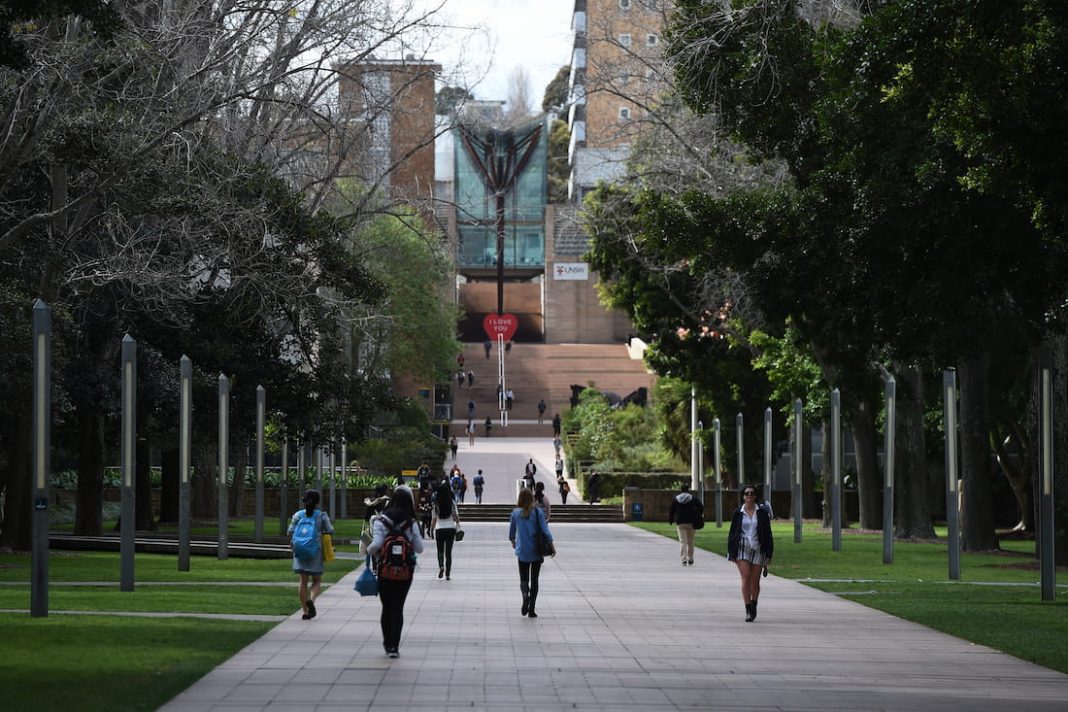Summary: The federal government has proposed a 20% cut to HECS debts if re-elected. This move would reduce $16 billion in loans, lowering repayments by over $5,500 for students with average debt levels of $27,600. National Union of Students president Ngaire Bogemann criticised the plan, arguing that capping indexation, rather than reducing debt, would more effectively address student debt challenges. Universities Australia supported the move but also urged the government to address degree costs. The opposition expressed concerns that non-university taxpayers would bear the financial burden of the policy.
Moves to slash HECS debts will help ease the burden on young people, the treasurer says, despite a peak body for students criticising the proposal.
University students will have their debt cut by 20 per cent, with $16 billion worth of loans being reduced, should the federal government win the next election.
For students with the average debt levels of $27,600 for their degree, more than $5500 would be taken off their repayments.
Treasurer Jim Chalmers said the changes would allow young people to get ahead sooner.
“This is all about easing cost-of-living pressures and lifting some of the burden on young people,” he told parliament on Monday.
“People are still under pressure. We also know that pressure is felt disproportionately by young people, including people who are carrying a lot of student debt.”
National Union of Students president Ngaire Bogemann dismissed the HECS changes as little more than an attempt to win back voters.
“If you want to talk about creating a fairer and more accessible higher education system, wiping debts to 20 per cent is not actually getting to the root cause of the issue,” she told ABC Radio on Monday.
The root cause was indexation, which kept debts growing, Ms Bogemann said.
“This seems a bit of a disingenuous attempt to bring some people in, vote-wise, and not an attempt to actually create change.”
Ms Bogemann said HECS indexation levels would result in many students back where they started in terms of their debt levels, even after the 20 per cent reduction.
“We’ve seen young Australians denied home loans because the HECS debts are so large,” she said.
“There are a whole heap of other issues here that I think are probably going to create more of an impact if they change.”
The government moved earlier in 2024 to cap indexation on HECS at either the rate of inflation or the wage price index, whichever of the two is lower, after the indexation rate increased rapidly above seven per cent.
Chief executive of Universities Australia Luke Sheehy said the peak body backed the efforts to make the student loan repayment system fairer.
“It sends the right message about university study being an affordable and good investment, especially as we work to meet Australia’s growing skills needs,” he said.
“These changes are a step in the right direction, but we’re also urging the government to think about the cost of degrees.”
Prime Minister Anthony Albanese said cutting the debt levels would make paying off the loans more manageable and address cost-of-living issues.
“The HECS scheme was never meant to be a lifetime of debt, it was meant to be a contribution back to education,” he told ABC Radio on Monday.
“Eighty per cent of the children who are in primary school today will need either a university degree or a TAFE qualification, not as an added bonus for their employment but as a precondition to getting a job because of the changes that are happening in the economy.”
The coalition had hit out at the student loans being slashed, with opposition frontbencher Paul Fletcher saying taxpayers who never went to university would have to pay for those who did.
“All 27 million Australians will be required to contribute to the cost of it, but 24 million Australians will not benefit from it,” he told ABC Radio.
“The Commonwealth already pays around 60 per cent of the cost of the university student’s education, so there’s already a very significant amount being paid by taxpayers.”
By Andrew Brown in Canberra



